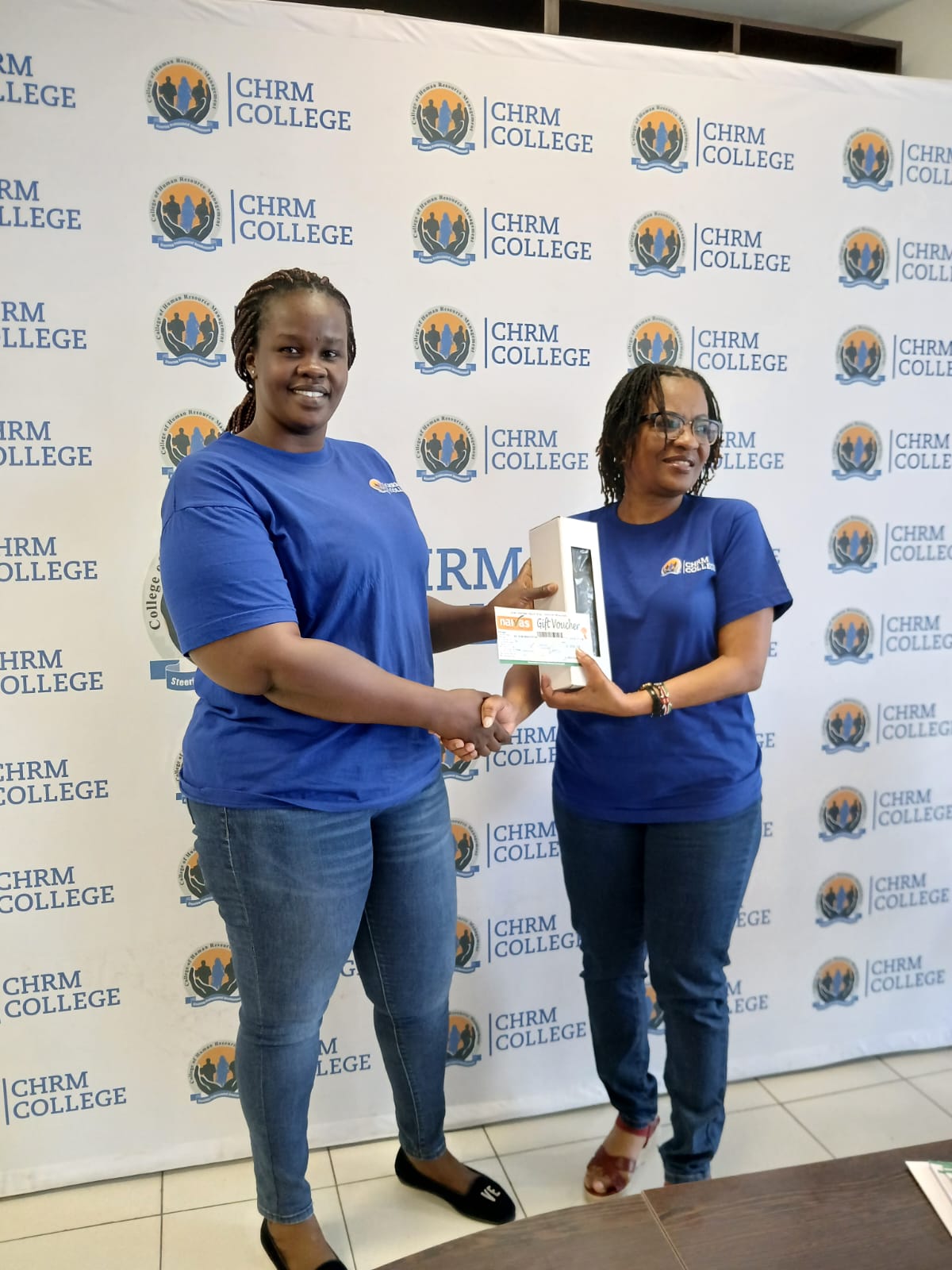CHRM College on Tuesday the 14th of January 2025, welcomed the leadership of The International NGO Roundtable for a pivotal meeting on fostering collaboration and advancing human resource (HR) practices in the NGO sector. Held at the college’s premises, the meeting brought together thought leaders from the two institutions, underscoring the shared commitment to enhancing professional standards and addressing sector-specific challenges.
The session was led by CHRP Margaret K. Kinyanjui, Principal of CHRM College, supported by Leonard Musomba, Head of Consultancy, and Moses Maina, Business Development Manager. Representing The International NGO Roundtable were Chairperson Paul Ngugi, Vice-Chairperson Eve Mutio, Treasurer Samuel Njoroge, Secretary Sylvia Barasa, and Co-opted Member Chris Sakwa.
The meeting underscored the need for collaborative and progressive partnerships for the benefit of the HR profession and the extended value to the organizations where the round table members operate.
The meeting took note of CHRM College’s diverse offerings, which include academic programs, HR and non-HR training, consultancy services, and practical in-house learning initiatives. The team was unanimous that this served as a foundation for identifying synergies between the college and the Roundtable and a source of great value to the partnership.
Paul Ngugi, Chairperson of The International NGO Roundtable, shared insights into the organization’s role as a caucus for HR practitioners within the NGO space. He expressed appreciation for CHRM College’s recent support of the Roundtable’s end-of-year dinner and emphasized the potential for a strategic, mutually beneficial partnership.
The dialogue explored several critical themes, including the importance of tailored training solutions to address the specific needs of NGOs, the development of locally relevant HR case studies through research, and opportunities to enhance professional certification among Roundtable members. Discussions also touched on partnering in varied initiatives to recognize HR excellence, creating awareness of CHRM’s programs through the Roundtable’s platforms, and leveraging the expertise of Roundtable members as resource persons for training and consultancy.
CHRM College highlighted its ability to provide customized learning experiences, leveraging its partnerships with global certification bodies like the Human Resource Certification Institute (HRCI) and its emphasis on practical, results-driven training. The college also expressed enthusiasm for collaborating on mentorship, internships, and attachments, as well as co-developing events and research initiatives.
This engagement exemplifies CHRM College’s commitment to building impactful partnerships that drive innovation, promote professional excellence, and support the growth of HR practice across diverse sectors. By working closely with The International NGO Roundtable, the college continues to play a vital role in shaping the future of HR in Kenya and beyond.
For more information on our programs, training, and consultancy services, please reach out through our contact page or connect with us on our social media platforms.



